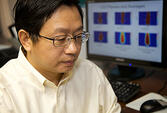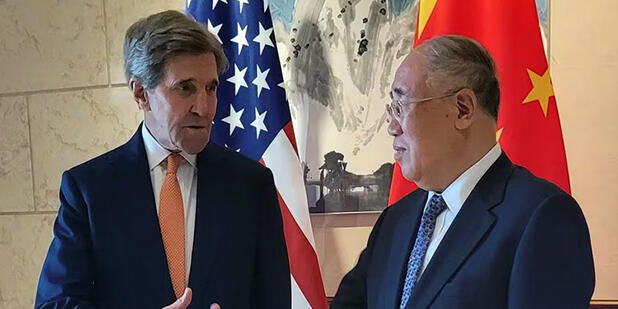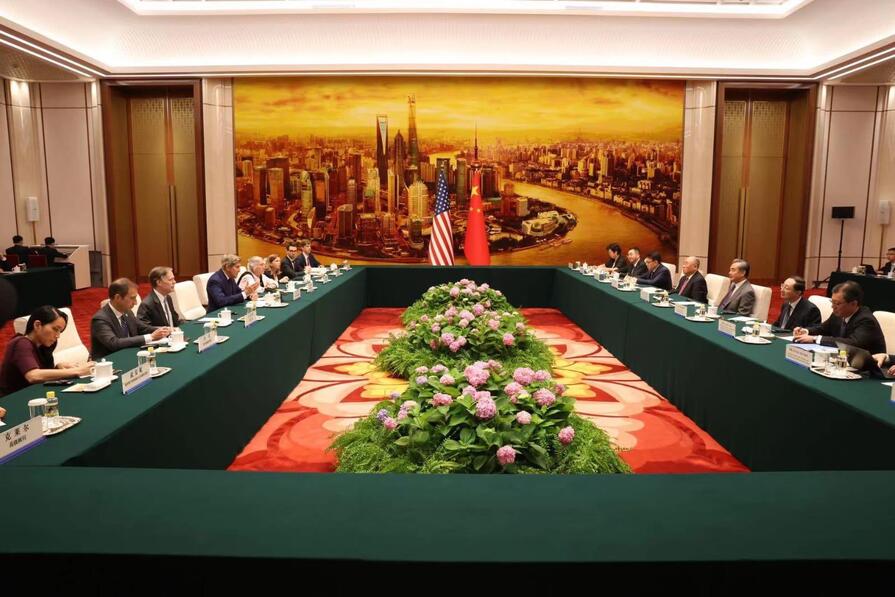For other articles and documents on green energy, click here.
Story originally published on August 25, 2009 by USC News
By Maxine Lym
Stanford’s Global Climate and Energy Project has initiated an international collaboration with the USC Viterbi School of Engineering and two Chinese universities to address fundamental issues associated with large-scale sequestration of carbon dioxide in China’s saline aquifers.
A saline aquifer is a subsurface geologic formation which has certain characteristics that could allow it to store significant amounts of carbon dioxide. The Global Climate and Energy Project is awarding close to $2 million for the three-year program, which will use geological modeling, reservoir simulation and laboratory experiments to identify the best approaches to realizing this potential.
Dongxiao Zhang, a professor in the USC Viterbi School of Engineering’s Astani Department of Civil and Environmental Engineering, is directing the 39-member team of scientists, researchers and students from USC, Peking University and the China University of Geosciences at Wuhan.
Qingdong Cai, professor of mechanics and engineering science at Peking University, and Yilian Li, professor of environmental studies at Wuhan, are the co-directors of this effort.
“Through the generous support from (the Global Climate and Energy Project), this research is investigating the fundamental issues associated with carbon sequestration in Chinese saline aquifers,” said Zhang, who holds the USC Viterbi School’s Gordon S. Marshall Professorship in Engineering Technology. “We believe such understandings could help guide similar sequestration efforts worldwide.”
“China and the U.S. are the world’s largest emitters of carbon dioxide — and both rely heavily on coal to produce electricity,” said Sally Benson, director of the Global Climate and Energy Project. “We are very excited to support this unique collaboration between three outstanding research institutions in China and the U.S. that could advance technologies for providing reliable electricity supplies while reducing global carbon emissions.”
With the support and participation of four international companies (ExxonMobil, General Electric, Schlumberger and Toyota), the Global Climate and Energy Project explores the science that could lead to energy technologies that are efficient, environmentally benign and cost-effective when deployed on a large scale. The new effort brings the total number of Global Climate-supported research programs to 66, with funding of $87.4 million committed since the project’s launch in the fall of 2002.
“Spearheading this international collaboration among leading Chinese and U.S. researchers to study new potential avenues for carbon sequestration is a key milestone,” said Ashok Belani, chair of the Global Climate and Energy Project’s management committee and chief technology officer of Schlumberger Ltd.
Other articles and documents on green energy:
Green Energy Programs in China and the U.S. | US-China Study on CO2 Storage | China’s Greenhouse Gas Emissions | Strategy for Clean Air and Energy Cooperation between EPA and SEPA | U.S.-China Renewable Energy Partnership | U.S.-China Energy Efficiency Action Plan | U.S.-China Clean Energy Research Center | Politics and energy policy in post-Mao China | US-China Memorandum of Understanding to Enhance Cooperation on Climate Change, Energy, and the Environment | To Change the Mode of Development and Speed up the Restructuring of Energy Industry | Country Analysis Briefs: Taiwan | Country Analysis Briefs: China | U.S.-China Energy Policy: Toward Closer International Partnerships | US Treasury Secretary Paulson on Energy and the Environment | China’s Energy Conditions and Policies | Sustainable Development in Asia: Coal, Oil, and Renewable Energy in China | 11th Five Year Plan on Energy Development | Engaging Developing Countries, House Committee on Energy and Commerce hearing | Carolyn Cartier | Richard Louis Edmonds | David Zweig |




